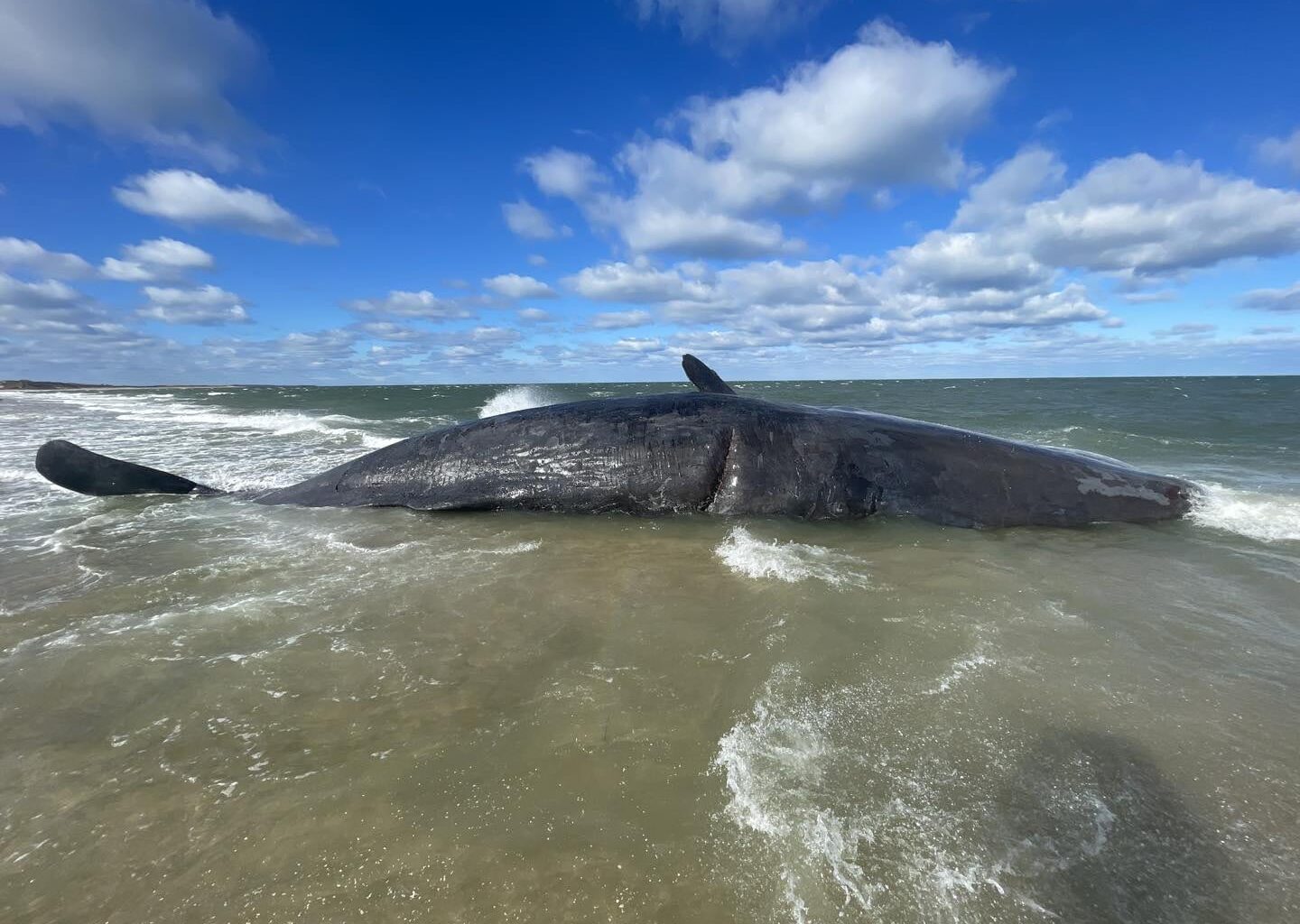Nantucket residents were encouraged on Thursday to pay their respects to a 52-ton sperm whale that washed up dead on the island on Sunday before it gets towed back out to sea, officials said.
“Many have come to see the animal and pay respects with flowers and petals,” the Marine Mammal Alliance Nantucket said in a press release. “It is a sad event, but a rare learning opportunity.”
The whale, which is too large to be moved to a location where a necropsy could be performed to determine its cause of death, had its jaw excised by NOAA’s Office of Law Enforcement on Wednesday.
“This was a preemptive act so people wouldn’t take teeth,” Robert Rocha, associate curator of science and research at the New Bedford Whaling Museum, said in a phone interview Thursday. “It is a temptation for people to try to get those teeth and keep them.”
Using whale’s teeth for arts and crafts, also known as “scrimshaw,” is an art form that originated on old whaling ships, according to Rocha.
“It was a way to pass time, keep people occupied when there was downtime,” Rocha said.
Town manager Libby Gibson said at a select board meeting on Wednesday that there is no set date when the whale will be removed.
“It is gonna hopefully happen soon, before Thanksgiving,” Gibson said. “Plans are underway.”
The whale has been anchored to shore, and biologists from the International Fund for Animal Welfare are set to arrive on the island to perform an “on-site examination,” officials said.
“The goal is to learn as much as possible about this individual and hopefully find some evidence of cause of death of this magnificent animal,” officials said.
Rocha said it isn’t normal for a whale of that size and weight to wash up on a beach.
“Based on what they said about his length and weight, that was a pretty robust, healthy animal,” Rocha said.
The skeleton of a whale that washed ashore in Nantucket in 2002 hangs in the New Bedford museum. Rocha said a necropsy on that whale revealed damage on the ribcage likely endured during a sudden rise to the surface.
With officials likely unable to perform a full necropsy on this whale, Rocha said officials will have trouble finding out its cause of death.
“If you can’t get the big gear that helps you do that, it makes it really hard to take a look,” he said.
Officials said the whale washed up on a popular swimming beach and allowing it to decompose “would cause serious hazard to beach goers, swimmers, and vessels.”
“Having the whale here has been a sobering event, but has provided a learning experience for all,” officials said.
Truman Dickerson can be reached at truman.dickerson@globe.com.

